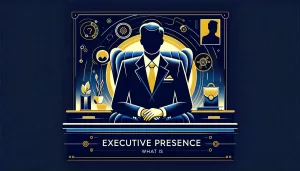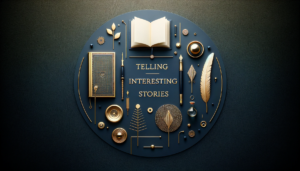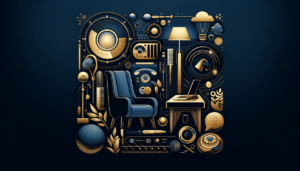What are the top books you should read?
This is a question that many of us have had to deal with. For avid readers, the to-read pile is usually way larger than the read pile.
There are millions of books published and each year that list increases by at least 1 million.
It will be almost impossible to read all the books we want to read. How can we make the most of the time we devote to reading?
There is a rumor about a wise old master that figured out which are the most important books we should read.
One day, the master gathered with his students and told them, “After reading 3000 books I’ve been able to identify the 3 most important books one should read.”
There was complete silence after the master said that. Nobody wanted to miss the name of the books or whatever the master said next.
A student was brave enough to break that silence, and asked “And which ones are those 3 books?”
“Well,” the master replied, “You’ll first have to read 3000 as well to be able to identify the top 3”.
I haven’t read 3000 books yet, but I’m on pace to do so. In 2021 I passed, for the third year in a row, the coveted “1 book per week” milestone.
And now, I want to share with you the top books I read in 2021. That way, if you have limited reading time, you can pick the best of the best.
In no particular order, here are the top 11 books I read in 2021. These come from the monthly newsletter I send where I share the top book of each month.
Contents
- 0.1 Tales of the Dervishes
- 0.2 Civilization: The West and the Rest
- 0.3 The Danish Way of Parenting
- 0.4 How to Do The Work
- 0.5 Loonshots
- 0.6 Power Vs. Force
- 0.7 Homo Deus
- 0.8 Conversations with God, Book 1
- 0.9 Freedom
- 0.10 The Sermon on the Mount
- 0.11 Leonardo da Vinci
- 1 Some Honorable Mentions
- 2
- 3 Want To Get Better at Picking Books?
Tales of the Dervishes
This book is filled with mindful and wise stories. Many of which I’ve shared with you in my monthly newsletter.
If attaining wisdom is a priority in your life, if you want to become a great storyteller, this will be a great book for you.
Some of my favorite highlights from this book:
- “Seek knowledge, not possessions, for possessions without knowledge are useless, and that is the cause of all our distractions.”
- “Man can only use what he has learned to use…”
- “Speak to everyone in accordance with the degree of his understanding.”
Civilization: The West and the Rest
This is a great book for anyone that wants to understand our past and how it is that we arrived at the state in which the world is today.
Some of my favorite highlights from this book:
- “In 1500 the future imperial powers of Europe accounted for about 5 per cent of the world’s land surface and at most 16 per cent of its population. By 1913, eleven Western empires controlled nearly three-fifths of all territory and population and close to three-quarters (a staggering 74 per cent) of global economic output.”
- “When the British emigrated to America, they often took their womenfolk with them. When Spanish and Portuguese men crossed the Atlantic, they generally traveled alone.”
- “British colonization generally produced better economic results than Spanish or Portuguese, wherever it arrived.”
The Danish Way of Parenting
The Danish are some of the happiest people in the world. A lot of that, it seems, is related to the way they parent their children.
Many of the experiences that generate emotions of fear, guilt, shame, and other negative emotions seem to be milder, or even absent, in the Danish Childhoods because of the parenting habits they have. And you can recreate those habits by reading this book.
This is a must-read for any parent.
Some of my favorite highlights from this book:
- “Emotional honesty, not perfection, is what children truly need from their parents.”
- “For example, if a Danish child scribbles a drawing very quickly and gives it to her parent, the parent probably wouldn’t say, ‘Wow! Great job! You are such a good artist!’ She is more likely to ask about the drawing itself. ‘What is it?’ ‘What were you thinking about when you drew this?’ ‘Why did you use those colors?’ Or perhaps she would just say thank you if it was a gift.”
- “Danish parents are good at helping their children conceptualize their emotions and then guiding them into finding something more constructive, instead of a disparaging or limited belief. This is the heart of reframing.”
How to Do The Work
If you didn’t have the advantage of having a Danish parent, then this book is a great option for you.
It will help you examine yourself, your life, and better understand how to start letting go of the emotions and thought patterns that are hurting you. Which will allow you to start building better ones that help you.
If you want to create positive patterns in your life, this book is for you. A great place to start is Dr. LePera’s Instagram account.
Some of my favorite highlights from this book:
- “If parent-figures have not healed or even recognized their unresolved traumas, they cannot consciously navigate their own path in life, let alone act as trustworthy guides for someone else.”
- “Our body’s reaction to threat is instinctual and involuntary; it is not a choice we make. We cannot blame someone who believes they are being attacked for lashing out any more than we can blame someone for sweating too much when they exercise.”
- “In other words, traumatic experiences aren’t always obvious. Our perception of the trauma is just as valid as the trauma itself.”
Loonshots
Much has been said about IQ vs EQ. About the right brain vs the left brain. Art vs science.
Intuitively, we all know that the answers are usually somewhere in the middle. This book is about finding that balance between structure and flow to create and nurture ideas that change the world.
Some of my favorite highlights from this book:
- “The first two rules are the ones mentioned above, the key to life at 32 Fahrenheit: separate the phases (the groups working on loonshots and on franchises) and create dynamic equilibrium (ensure that projects and feedback travel easily between the two groups).”
- “Efficiency systems such as Six Sigma or Total Quality Management might help franchise projects, but they will suffocate artists.”
- “After a bad move costs him a game, however, Kasparov analyzes not just why the move was bad, but how he should change the decision process behind the move.”
- “If companies create review systems that guard against politics, invest in developing their employees’ skills, and do a good job in matching employees with projects that allow their skills to shine – those companies will increase their likelihood of nurturing loonshots.”
Power Vs. Force
This is the first of many books I read this year while going through the path of spirituality. And it’s a great place to start for anyone else who wants to go down that route.
Some of my favorite highlights from this book:
- “No matter where we start in an examination of human knowledge, we always end up looking at the phenomena of awareness and the nature of human consciousness.”
- “The key to Joy is unconditional kindness to all of life, including one’s own, which we refer to as compassion.”
- “We become healthy, as well as wealthy, by being wise. But what is wisdom? According to our research, it is the result of alignment with high-power attractor patterns.”
Homo Deus
Over the past years, I’ve dedicated a lot of my reading time to history books and biographies.
Understanding and learning about the past is great. But at some point, we have to start thinking and learning about the future.
This book will help you expand your mind, and your thinking, because it uses the past as a way to look into the future.
Some of my favorite highlights from this book:
- “The upgrading of humans into gods may follow any of three paths: biological engineering, cyborg engineering and the engineering of non-organic beings.”
- “In 2012 about 56 million people died throughout the world; 620,000 died due to human violence (war killed 120,000 people, and crime killed another 500,000). In contrast, 800,000 committed suicide, and 1.5 million died of diabetes. Sugar is now more dangerous than gunpowder.”
- “Modern Western culture is therefore unique in lacking a specialized class of people who seek to experience extraordinary mental states. It believes anyone attempting to do so is a drug addict, mental patient or charlatan.”
Conversations with God, Book 1
Want to go deeper into your spiritual journey? This is a great book to do so.
If I could only pick a few books, out of this already selective list, conversations with God will likely be one of those few.
Yet, if the title or topic doesn’t resonate with you that’s fine. It wouldn’t have resonated with me a few years ago.
Some of my favorite highlights from the book:
- “This is a day-to-day, hour-to-hour, moment-to-moment act of supreme consciousness. It is a choosing and a re-choosing every instant. It is ongoing creation.”
- “The reason that the true Master does not complain is that the true Master is not suffering, but simply experiencing a set of circumstances that you would call insufferable.”
- “Seek then to create change not because a thing is wrong, but because it no longer makes an accurate statement of Who You Are.”
Freedom
This book will grab you by the throat and won’t let you go until you finish it.
It’s a short and great read.
Part of it is the story of a trip that Junger took, on foot, around the US. Part of it is a historic summary of how humans have pursued freedom.
Some of my favorite highlights from the book:
- “We walked around four hundred miles and most nights we were the only people in the world who knew where we were. There are many definitions of freedom but surely that is one of them.”
- “For most of human history, freedom had to be at least suffered for, if not died for, and that raised its value to something almost sacred.”
- “Soldiers, firefighters, and criminal gangs are notorious for the ordeals they put novices through in order to find out who they can count on. For those who pass the test, belonging to such a group can feel wildly liberating even though it must be one of the most oppressive forms of government ever devised.”
The Sermon on the Mount
Another must-read for anyone who wants to grow spiritually.
It’s an almost line-by-line analysis of the Sermon on The Mount. With guidance on how to apply those spiritual principles in your life.
Some of my favorite highlights from the book:
- “However you regard him, the fact will remain that the life and death of Jesus, and the teachings attributed to him have influenced the course of human history more than those of any other man who has ever lived; more than Alexander, or Caesar, or Charlemagne, or Napoleon, or Washington.”
- “If you are not progressing as fast as you wish to, the remedy is – to be still more careful to hold only harmonious thoughts.”
- “When you feel hurt because someone has been ungrateful for your kindness, it shows that you have been looking for gratitude, and this is a great mistake. The true reason for helping another is that it is our duty to help others insofar as we can do so wisely; or because it is an expression of love.”
Leonardo da Vinci
What better way to grow in life than learning from the ultimate polymath of our history?
Isaacson needs no introduction as a biographer nor does Leonardo as a great mind. I have to admit that it took me a while to read this book. It doesn’t flow as easily as some of the other books on this list.
Yet, it’s worth it to take as long as needed to read it.
Some of my favorite highlights:
- “It shows that Leonardo’s record of unreliability was not simply because he decided to give up on certain paintings. He wanted to perfect them, so he kept hold of many of them for years, making refinements.”
- “His notebooks have been rightly called ‘the most astonishing testament to the powers of human observation and imagination ever set down on paper.'”
- “As a result, he spent more time pursuing wisdom than working on jobs that would make him money beyond what he needed to support his growing household retinue.”
Some Honorable Mentions
These books did not make the top of the month but were very close to doing so.
- Awareness
- Lincoln the Unknown
- Napoleon: A Life
- Socrates: A Man for Our Times
- Built to Last
- That One Should Disdain Hardships
- The Tiger
- Daily Rituals
Want To Get Better at Picking Books?
If you’d like to keep receiving a list of top books, you can subscribe to the Mindful Business Book Club newsletter.
Through this newsletter I share on a monthly basis, you will receive reviews and highlights from the 4-10 books I read every month. Also, it contains some of the wisest and enlightening stories I can find within those books.
And you can use those stories in any of your presentations, speeches, or written pieces.





